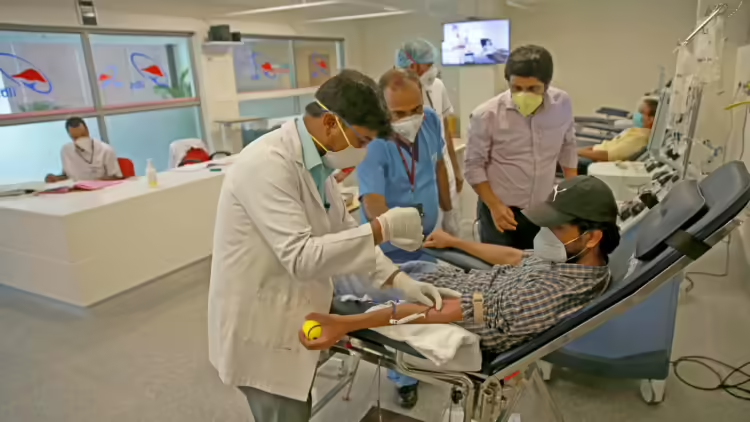According to ICMR, 45% of physicians at prestigious institutions give patients incorrect prescriptions
The behavior of medical experts seated at prestigious institutions has come under scrutiny in a recent research by the Indian Council of Medical Research (ICMR), raising concerns about potential risks to patient safety.

Approximately 45% of physicians write patients incomplete prescriptions, according to a survey done at 13 medical facilities, including Safdarjung and AIIMS.
Furthermore, 10% of the prescriptions under investigation included “unacceptable deviations,” such as multiple diagnoses or unsuitable medicine prescriptions.
The year-long study, “Evaluation of prescriptions from tertiary care hospitals across India for deviations from treatment guidelines & their potential consequences,” was published in the Indian Journal of Medical Research.
The 13 ICMR Rational Use of Medicines Centers are situated in tertiary care institutions, where the cross-sectional observational research was carried out in the outpatient departments between 2019 and 2020.
Renowned government facilities in the nation, such as Safdarjung Hospital and Delhi AIIMS, participated in the study.
“Prescriptions not compliant with the standard treatment guidelines and incomplete prescriptions with respect to formulation, dose, duration, and frequency were labelled as ‘prescriptions having deviations,'” the IJMR study said, using the survey’s methodology. An unacceptably high deviation was one that raised the risk of medication interactions, nonreaction, cost increases, avoidable adverse drug reactions (ADRs), and/or antibiotic resistance.
The report’s conclusions said that 2,171 prescriptions with inadequacies were subsequently discovered out of a total of 7,800 patients’ prescriptions that were collected from these institutions and 4,838 of them were analyzed. The “cherry on top” was that 475 prescriptions, or around 9.8% of the total, turned out to be entirely incorrect. The report’s findings indicated that 102 patients had provided more than one diagnosis, and that several of those cases included improper medicine prescriptions.
The study found that the physicians who wrote the incorrect or insufficient prescriptions had many years of combined experience as practicing physicians.
“On average, the prescribers had been in practice for 4–18 years and were all postgraduates in their respective fields. Analgesics were co-prescribed with pantoprazole for individuals who presented with pain. If a patient is at danger of developing a peptic ulcer, gastroprotective medications should be provided. According to the research, “pantoprazole prescriptions that are not necessary may result in adverse effects like rash, oedema, and abdominal bloating.”






